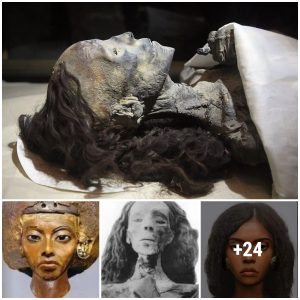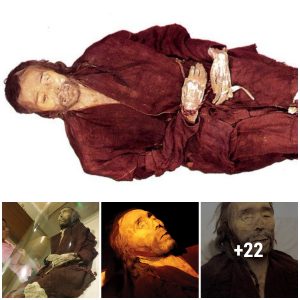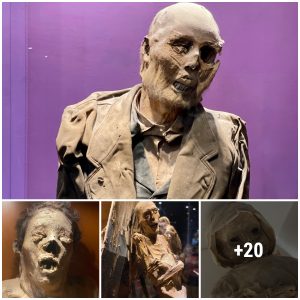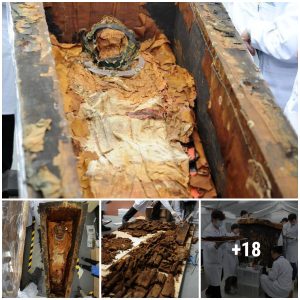Hese ancient skeletons are said to be remains of Catholic martyrs dug up from Roman catacombs. The bodies are covered in priceless ancient treasure and they are a truly gruesome sight.
In his book, Heavenly Bodies: Cult Treasures and Spectacular Saints from the Catacombs, Paul Koudounaris offers an intriguing visual history of the veneration in European churches and monasteries of bejeweled and decorated skeletons. “Death has never looked so beautiful”.

The fully articulated skeleton of a female saint, dressed in an intricate costume of silk brocade and gold lace, withered fingers glittering with colorful rubies, emeralds, and pearls-this is only one of the specially photographed relics featured in ‘Heavenly Bodies’.
St Benedictus: Thousands of skeletons were dug up from Roman catacombs in the 16th century and installed in towns around Germany, Austria and Switzerland on the orders of the Vatican.
In 1578 news came of the discovery in Rome of a labyrinth of underground tombs, which were thought to hold the remains of thousands of early Christian martyrs.
Skeletons of these supposed saints were subsequently sent to Catholic churches and religious houses in German-speaking Europe to replace holy relics that had been destroyed in the wake of the Protestant Reformation.
The skeletons, known as “the catacomb saints,” were carefully reassembled, richly dressed in beautiful and fantastic costumes, wigs, crowns, jewels, and armor, and posed in elaborate displays inside churches and shrines as reminders to the faithful of the heavenly treasures that awaited them after death.
Long dead: The hand of St Valentin in Bad Schussenreid, Germany (left) and St Munditia, in the church of St Peter in Munich (right).
Paul Koudounaris gained unprecedented access to religious institutions to reveal these fascinating historical artifacts. He believes that it’s impossible to put a modern-day value on the skeletons.

Hidden for over a century as Western attitudes toward both the worship of holy relics and death itself changed, some of these ornamented skeletons appear in publication here for the first time.”
“After they were found in the Roman catacombs the Vatican authorities would sign certificates identifying them as martyrs then they put the bones in boxes and sent them northwards. The skeletons would then be dressed and decorated in jewels, gold and silver, mostly by nuns.
St Benedictus: Thousands of skeletons were dug up from Roman catacombs in the 16th century and installed in towns around Germany, Austria and Switzerland on the orders of the Vatican.

They had to be handled by those who had taken a sacred vow to the church – these were believed to be martyrs and they couldn’t have just anyone handling them. They were symbols of the faith triumphant and were made saints in the municipalities.
One of the reasons they were so important was not for their spiritual merit, which was pretty dubious, but for their social importance. They were thought to be miraculous and really solidified people’s bond with a town. This reaffirmed the prestige of the town itself.





